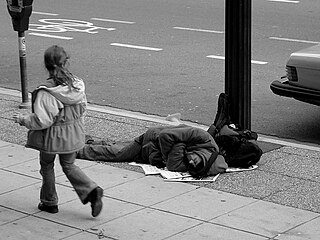 W
WThe Vagabonds and Beggars Act 1494 was an Act of Parliament passed during the reign of Henry VII. The Act stated that "vagabonds, idle and suspected persons shall be set in the stocks for three days and three nights and have none other sustenance but bread and water and then shall be put out of Town. Every beggar suitable to work shall resort to the Hundred where he last dwelled, is best known, or was born and there remain upon the pain aforesaid."
 W
WThe Vagabonds Act of 1530 was an act passed under Henry VIII and is a part of the Tudor Poor Laws of England. In full, it was entitled an "Act how aged, poor and impotent Persons, compelled to live by Alms, shall be ordered; and how Vagabonds and Beggars shall be punished.”
 W
WThe Vagabonds Act 1597 is an Act of the Parliament of England.
 W
WThe Vagrancy Act 1824 is an Act of Parliament of the United Kingdom that makes it an offence to sleep rough or beg. It remains in force in England and Wales, and anyone found to be sleeping in a public place or to be trying to beg for money can be arrested.
 W
WThe Vagrancy Act 1838 was an Act of Parliament in the United Kingdom, signed into law on 29 July 1838. It amended the Vagrancy Act 1824 to provide that any person discharged from custody pending an appeal against a conviction under that Act who did not then reappear to prosecute the appeal could be recommitted. It also provided that the penalty established by that Act for exposing indecent prints in a street or highway would extend to those who exposed the same material in any part of a shop or house.
 W
WColeman v Power was a High Court of Australia case that dealt with the implied freedom of political communication found in the Australian Constitution.
 W
WAnti-homelessness legislation can take two forms: legislation that aims to help and re-house homeless people; and legislation that is intended to send the homeless to homeless shelters compulsorily, or to criminalize homelessness and begging.
 W
WR v Heywood 1994 3 S.C.R. 761 is a leading Supreme Court of Canada decision on the concept of fundamental justice in section seven of the Charter. The Court found that section 179(1)(b) of the Criminal Code for vagrancy was overbroad and thus violated section 7 and could not be saved under section 1.
 W
WLoitering is the act of remaining in a particular public place for a protracted time, without any apparent purpose.